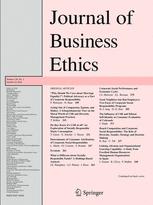
Developing Ethical Behavior in Financial Institutions
Blog Guest post by Rachel Fichter of S&P Global Ratings and member of our Advisory Board
Guest post by Rachel Fichter of S&P Global Ratings and member of our Advisory Board
Late last year I published a post on LinkedIn about my dissertation research on developing ethical behavior in financial institutions. I was disheartened, but not surprised, by comments such as “a losing battle” and “oxymoron,” which promulgated a deeply cynical view of ethics in the financial sector. Fast forward to the announcement last week that Wells Fargo will pay a fine of $185 million (a mere drop in the bucked for a company that generated $23 billion in profits in 2015) to settle allegations of fraud committed by thousands of its employees. It is particularly disconcerting that unethical behavior could take place on such a massive scale after years of intense post-financial crisis scrutiny and regulation.
In spite of continued ethical breaches in the financial industry, as a “scholar-practitioner” in the field of adult learning, I am firm believer in the possibility of positive human growth and transformation. And, as a 17-year veteran of the financial industry, I have had the privilege of collaborating with many outstanding people who are fully committed to “doing the right thing”—helping clients achieve their long term financial goals and to supporting the development of vibrant economies in the communities they serve. Unfortunately, I have also worked with self-serving and even mean-spirited individuals whose behaviors were, in my view, unethical. Although many of them imploded over time, it was not before creating a trail of lasting devastation.
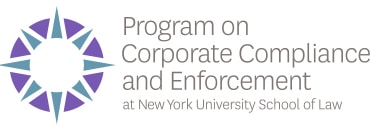
Crediting the Behavioral Approach
Blog This piece has been cross-posted from the NYU Law Compliance and Enforcement blog.
This piece has been cross-posted from the NYU Law Compliance and Enforcement blog.
By: Timothy J. Lindon, Vice President and Chief Compliance Officer at Philip Morris International Inc.
The compliance message to companies from Washington is practical and encouraging. Regulators are not looking to reward check-the-box programs or companies that simply say the right things about integrity in their Codes of Conduct. They are looking for innovative approaches that work to prevent misconduct in the real world, and can be measured.
The problem of course is identifying and measuring what works. We have lots of compliance metrics like training completion rates and the number of helpline calls, but none of them measures fully the impact of our programs on ethical decisions by individual employees. In fact, research shows that many of the activities credited under the federal sentencing guidelines may actually be counter-productive. For example, training that is regarded by employees as a check-the-box exercise is viewed as insincere and undermines compliance with policies.
So what works?
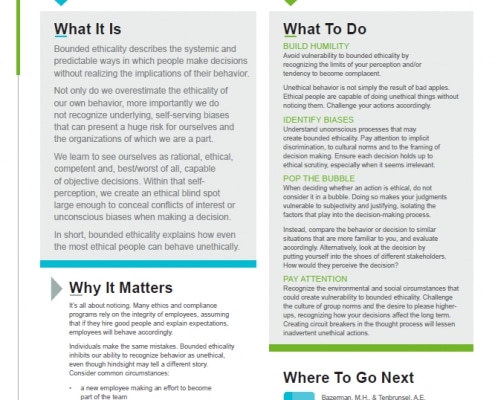
New Behavioral Science One Sheets
Blog It is no secret that behavioral science can be chock full of terms that, while widely recognized in our community, may still present some confusion among practitioners. To that end, in partnership with the Notre Dame Center for Ethical Leadership, Ethical Systems has created the first in an ongoing series of downloadable one-sheets designed to demystify and connect behavioral science concepts to daily workflow and organizational cultures across the world.
It is no secret that behavioral science can be chock full of terms that, while widely recognized in our community, may still present some confusion among practitioners. To that end, in partnership with the Notre Dame Center for Ethical Leadership, Ethical Systems has created the first in an ongoing series of downloadable one-sheets designed to demystify and connect behavioral science concepts to daily workflow and organizational cultures across the world.
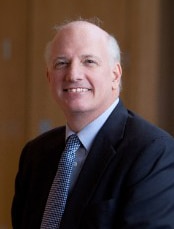
Featured Collaborator for September: Robert Hurley
Blog Interview with Dr. Robert Hurley, Professor of Organization Behavior at Fordham University’s Gabelli School of Business
Interview with Dr. Robert Hurley, Professor of Organization Behavior at Fordham University’s Gabelli School of Business
How does your work on trust help companies that want to improve themselves as ethical systems?
We work with collaborators all over the world to examine in depth what stakeholder trust is and precisely how organizations that earn and sustain that trust operate. We very much agree with the eco system approach adopted by Ethical Systems. In 2012 we formed the Consortium for Trustworthy Organizations to translate this research into practical tools to help organizations move along a path to becoming more trustworthy.
Examples of these tools are executive programs where we teach leaders about trust in leadership and the need to create congruent organizational systems that create a reliable infrastructure to meet stakeholder needs. We have also developed survey tools to diagnose which elements of an organization need improvement to make the organization more trustworthy. Interestingly, our work has shown that there is not a one size fits all approach to developing a more trustworthy organization. Organizations, like people, are unique and our contests present different challenges. As such we must start with a full diagnosis that shows us in what ways we are trustworthy and in what ways we are not. Only then can we start moving in the right direction to meet our own and stakeholders needs.
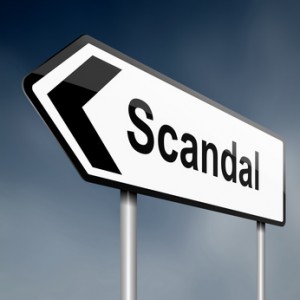
The Scandal Effect: Removing the taint of corporate ethical lapses
Blog Imagine an executive at a company leaves their job in January, six months before the company becomes embroiled in an ethical scandal. The executive now has the taint of a botched job attributed to him/her and, like the smelly car from Seinfeld, it is hard to wash off and seems to follow them everywhere.
Imagine an executive at a company leaves their job in January, six months before the company becomes embroiled in an ethical scandal. The executive now has the taint of a botched job attributed to him/her and, like the smelly car from Seinfeld, it is hard to wash off and seems to follow them everywhere.
A recent article in Harvard Business Review illuminated this phenomenon, shows how much of a long term impact scandal can have on people. The results were shocking (though not so much odiferous).
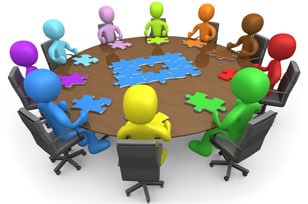
Shareholders vs Stakeholders: Who should companies focus on enriching?
Blog When a company has a record year in its stock price, who wins? Frequently it is only a limited number of individuals as opposed to the greater society in which we all live. For public shareholders, a bump in stock price is a good thing but what history shows is that more often than not, the short-term jolts come at the expense of a more sustainable strategy towards success (VW, HSBC and other recent corporate scandals come to mind).
When a company has a record year in its stock price, who wins? Frequently it is only a limited number of individuals as opposed to the greater society in which we all live. For public shareholders, a bump in stock price is a good thing but what history shows is that more often than not, the short-term jolts come at the expense of a more sustainable strategy towards success (VW, HSBC and other recent corporate scandals come to mind).
At Ethical Systems, in addition to taking a systems approach to corporate culture and ethics, we advocate for a stakeholder perspective towards business and profits. In contrast to a shareholder focus, which prioritizes the stock price over other factors, concentrating on stakeholders, i.e. those outside of the investor pool, yields a more ethically focused organization where leaders consider actions in the long term. While the latter strategy may forego the highs of the market, it can inoculate against the lows and downturns which can be more debilitating than heights reached at peak economic times.
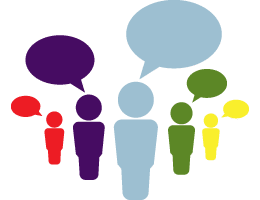
Bro-ken speech? Speaking up and speaking out
Blog Speaking-up is hard to do. In a research survey conducted by Sean Martin, Associate Professor at the Carroll School of Management, and presented at Ethics By Design, respondents identified speaking up about ethical issues as the scariest form of “employee voice” in organizations (even more so than speaking up to point out problems). If you’ve ever felt that pain in your gut about giving bad news to your boss, you likely share this sentiment.
Speaking-up is hard to do. In a research survey conducted by Sean Martin, Associate Professor at the Carroll School of Management, and presented at Ethics By Design, respondents identified speaking up about ethical issues as the scariest form of “employee voice” in organizations (even more so than speaking up to point out problems). If you’ve ever felt that pain in your gut about giving bad news to your boss, you likely share this sentiment.
Raising ethical issues requires courage compared to other forms of workplace interactions, as shown in research by James Detert – people’s self-preservation instincts drive their decision to stay silent, even if it’s an issue the company could perceive as one that improves its processes, products or procedures. Research by Professors Milliken (NYU Stern), Morrison and Hewlin (NYU Stern) also shows that employees are likely to be silent because they fear being labeled a troublemaker by their colleagues, and thus damaging valued business relationships. Surprisingly, retaliation in the form of losing one’s job or being passed up for a promotion is at the bottom of the list of reasons to stay silent.
Given this fear, it’s no surprise that corporations struggle to change their internal culture, particularly when the issues are cultural transgressions that subtly create imbalances in the workplace.

Should Whistleblowers Receive a Reward for Speaking Up?
Blog The increased exposure recently provided to the actions of whistleblowers at organisations like CommInsure, Theiss and 7-Eleven is, in a perverse way, a very positive development. Obviously we feel for those who under extremely difficult circumstances have taken considerable personal risk to expose wrongdoing, especially if their selfless actions have come at a cost. This latter outcome can never be excused. However, the increased publicity is proving to be a catalyst for change.
The increased exposure recently provided to the actions of whistleblowers at organisations like CommInsure, Theiss and 7-Eleven is, in a perverse way, a very positive development. Obviously we feel for those who under extremely difficult circumstances have taken considerable personal risk to expose wrongdoing, especially if their selfless actions have come at a cost. This latter outcome can never be excused. However, the increased publicity is proving to be a catalyst for change.
And there is no question that change is needed. At the organisational level companies must begin to recognise that there are enormous benefits associated with giving employees voice. Even the best laid compliance framework has limitations, and the most effective way to overcome these is to promote and embrace a speak up culture – employees shining a torch on poor conduct should be cherished not chastised.

Featured Collaborator for July & August: Hal Movius
Blog Interview with Hal Movius, president of Movius Consulting and senior consultant to The Consensus Building Institute
Interview with Hal Movius, president of Movius Consulting and senior consultant to The Consensus Building Institute
What are your main areas of research?
Lately I’m interested how we can help people to negotiate with greater emotional and behavioral confidence, without becoming cognitively blinded. There’s a fair amount of research on how judgmental overconfidence can worsen conflict, but very little on why most of us dread negotiating, even though it is a critical life skill. While there are self-assessment tools that people use to categorize their negotiating styles, these are largely useless because 1) people don’t realize how powerful and varied situations can be, and therefore how varied their own behaviors will be, and 2) many people respond in self-enhancing ways, claiming to be assertive or collaborative when in fact the modal human response to conflict is avoidance. So I’m in interested in taking apart what it means to be “confident” and what it means to “negotiate,” so we can help people be less frightened and more competent, without falling prey to common self-serving biases and other errors in judgment.
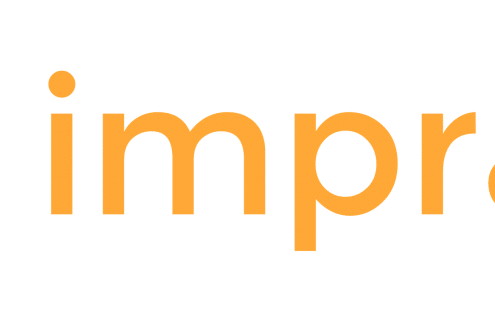
Start A Culture Change With Feedback [reblogged from impraise]
Blog Reblogged from our friends at impraise. Written by Andrea Hak.
Reblogged from our friends at impraise. Written by Andrea Hak.
Every company has their own unique culture. Whether positive or negative, company culture is a set of norms, beliefs, values and vision that define how employees and managers interact within an organization. Whether you have a preset list of company values or not your company has its own culture. The question is how you can shape your company’s culture to fit new norms and objectives you’d like to see in your company?
